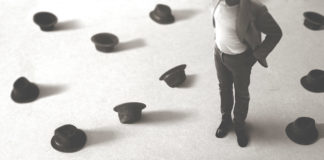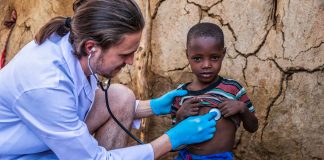The surprise of this very night
''The ground of a certain rich man yielded an abundant harvest. He thought to himself, ‘What shall I do? I have no place to store my crops.’ Then he said, ‘This is what I’ll do. I will tear down my barns and build bigger ones, and there I will store my surplus grain. And I’ll say to myself, 'You have plenty of grain...
An impossible inventory of the most widespread fake news about COVID-19
The epidemic of false information in this worldwide pandemic is even more infectious than the virus itself. Fortunately, there is a vaccine for this epidemic of fake news: quality information and information filters. However, not everyone has been vaccinated. Here is an immunization effort.
Slippery slopes and anxious feet
The fact that we are able to anticipate most of the consequences of our actions is undoubtedly a blessing. However, we can also allow fear or over-cautiousness to make us anticipate events that are not likely to follow. This edges us toward a common error of judgement: the slippery slope.
Evidence-based medicine: How to set a foundation for trusting the doctors
How can I be sure that the recommendations I receive after a medical consultation are correct? In the article below, we discuss evidence-based medicine.
The things we suffer from are not the things that define us
At 28, the world was hers. Ellie Finch Hulme was engaged to the man of her dreams, and a lifetime of experience lay before her, like an open field in which one could run freely in any direction. Then came the diagnosis.
COVID-19: Rehearsal for the big surprise
There has been a lot of speculation in the online environment about COVID-19 and the end of the world, but the connection between the two is more subtle than it first appears. It has been suggested that the pandemic is only the tip of the iceberg, that it is one of the seven last plagues of Revelation, or that it is the fourth...
The opposite of love is not hatred (part 2)
Why couldn’t God simply have forgiven sinners? Precisely because sinners cannot be forgiven until they completely understand sin, with all its far reaching consequences, or before the wages of sin are paid.
Faith that sees the miracle
I spent the end of high school in the Scandinavian school system. There, the teenager is confronted with the great questions of mankind in the context of social disciplines
Cardboard therapy
“So, is it like Monopoly?” The response is often amusing when a family member, friend or acquaintance discovers I’m “into board games”. Most are taken aback, shocked that an otherwise seemingly well-adjusted adult man would find so much enjoyment in a children’s hobby.
One taken and the other left
Some people who have avoided death in a plane crash by missing a flight, whether through being delayed or being denied boarding, say with great conviction: "God was with me." But for those who seek comprehensive explanations for such things, the obvious question is: why was God with them and not with those who perished?
Appeal to popularity. What explains the popularity of an error?
When we consider that a conclusion is founded only if a lot of people consider it true, we fall into the trap of the argumentum ad populum or the appeal to popularity.
Introverts and their road to success
They would rather work alone or in small teams, they do not wish to draw attention, they love quiet, less stimulating environments, and they need time to make decisions. With this general profile, introverts seem to have a slim chance of prospering in a society that usually rewards extroverts—unless they learn to harness their strengths.
Will Afghanistan become a hotbed of international terrorism?
In recent weeks, Afghanistan has become a tender spot for the whole world. The Taliban's new and newly offensive rise to power is a novel situation for the international community, and every international player wants to know how to position itself in this new pattern of dynamic, bewildering forces.
The Flight from God | Book review
The Flight from God describes the experience of distancing oneself from God. When we are under the impression that we are running away and that we reach a space where God is absent, we discover that God is already there, inviting us to believe.
The doctor of the forgotten world
Doctor Roland Hermann knows what he wants to do with his life. This is the explanation that best describes his decisive yet relaxed and simple answers. For years, the 45-year-old dentist from Mediaș, Romania, has been travelling to forgotten places to treat hundreds and thousands of disadvantaged patients.


























